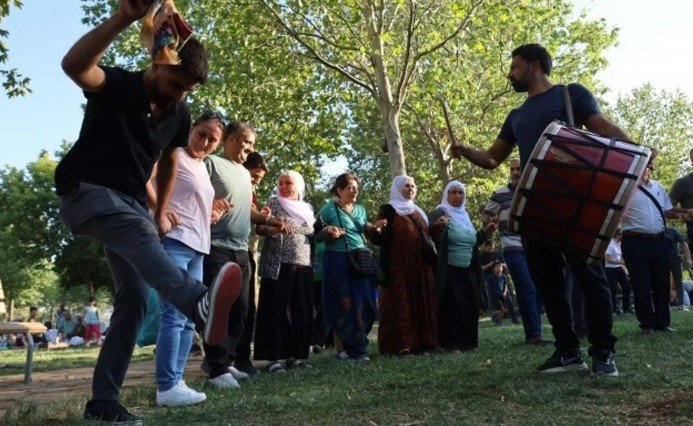A Turkish government plan to address the conflict with Kurdish militants has renewed the focus on Kurdish rights, which Kurdish leaders say have eroded despite gains made over a decade ago, Reuters reported.
Among the rights in question is access to Kurdish language education. In 2012, Turkish President Tayyip Erdoğan described the introduction of two-hour weekly Kurdish classes in schools as a “historic step” in a country where Kurdish was once banned entirely. Yet, more than a dozen Kurdish parents, politicians and education experts told Reuters that today, these classes are often inaccessible, even in major cities, and many Kurdish families are unaware of their right to request them.
Kurdish people make up roughly 20 percent of Turkey’s population, with an estimated 17 million individuals. For many, Kurdish is their first language and education in their mother tongue remains a primary demand. However, Turkey’s constitution declares, “No language other than Turkish shall be taught as a mother tongue to Turkish citizens.”
“The Kurdish people’s right to mother-tongue education is vital for preserving their cultural identity and achieving social equality,” said Gulistan Kilic Kocyigit, chairperson of the pro-Kurdish Peoples’ Equality and Democracy Party (DEM Party). “It is essential for peace, equal citizenship and the protection of cultural rights.”
In October, a surprising proposal emerged from Erdoğan’s political ally, suggesting the release of imprisoned Kurdistan Workers’ Party (PKK) leader Abdullah Öcalan in exchange for the PKK ending its insurgency. This echoed the peace talks launched in 2012, which collapsed in 2015, leading to renewed violence and crackdowns on pro-Kurdish political movements.
“Since the peace process ended, optional Kurdish classes have become nearly invisible in schools,” said Remezan Alan, a lecturer at Artuklu University in Mardin province, home to a Kurdish Language and Culture department established in 2009. Alan’s own children in Diyarbakır, a predominantly Kurdish city, were unable to enroll in Kurdish classes due to a lack of teachers, despite sufficient demand.
The Ministry of Education stated that Kurdish courses require at least 10 enrolled students to proceed but declined to comment on specific cases. Education Minister Yusuf Tekin recently denied allegations of state resistance to these courses, attributing low enrollment to a 2012 boycott by the DEM Party’s predecessor party, which criticized the limited two-hour offering.
Parents emphasize the importance of Kurdish literacy for their children. Hudai Morarslan, a member of the Egitim-Bir-Sen teachers’ union, noted that optional Kurdish classes are available in just 13 cities nationwide. He has been advocating for their expansion to places like Bingöl, in southeastern Turkey. “Many are afraid to ask,” he added, citing fears of stigmatization or association with the PKK, which is designated as a terrorist organization by Turkey and its western allies.
This fear is not unfounded. In November, Turkish authorities detained 231 individuals and removed six pro-Kurdish mayors over alleged PKK links. The DEM Party reported that many detainees were local officials and activists. Authorities have also detained individuals at Kurdish weddings for singing and dancing to traditional songs, which officials claimed promoted PKK propaganda and threatened national unity.
A state-run Kurdish TV channel was launched in 2009; however, some Kurds view these measures as superficial. Nevzat Yesilbagdan, a resident of İstanbul’s Bağcılar district, said his children’s requests for Kurdish classes were repeatedly denied due to insufficient teachers or students. “Our main goal is mother-tongue education, but even optional courses would be a step in the right direction,” he said.
A 2020 study by Rawest Research found that only 30 percent of surveyed parents were aware of optional Kurdish courses.
İhsan Yıldız, a construction worker in İstanbul, said his teenage daughter stopped asking for Kurdish classes after her school failed to respond to her request. Yıldız’s children understand Kurdish but cannot read it.
“My mother, who lives with us, doesn’t speak Turkish. I have to translate when my kids talk to their grandmother,” he said. “It’s heartbreaking.”















